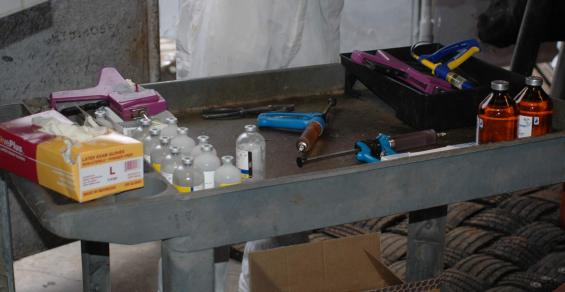Would you trust a United Nations agency that manipulates data to falsely accuse a herbicide of being carcinogenic? Neither do I.
But that’s what Reuters discovered. A report by Reuters says the WHO purposefully distorted its finding on glyphosate, resulting in the United Nations claiming the weed killer is a carcinogen. A draft of the report reviewed by Reuters in a comparison with the published report showed the removal of multiple scientists’ conclusions that their studies had found no link between glyphosate and cancer in laboratory animals.
Keep this in mind when you read the WHO report on antibiotic use in livestock.
Nonetheless, in spite of the WHO’s unethical track record, or perhaps because of it, anti-agriculture groups are doing backflips over the report. According to Dr. David Wallinga, senior health officer with the Natural Resources Defense Council, antibiotic resistance is a worldwide epidemic. “The Guideline may be a game-changer in this fight. It calls for fairly significant changes to how many of the world’s biggest food-animal producers now operate, including the U.S.,” he says.
READ: Antibiotics: Fuzzy connections between humans and animals
However, USDA’s acting chief scientist has a different opinion. “The WHO guidelines are not in alignment with U.S. policy and are not supported by sound science. The recommendations erroneously conflate disease prevention with growth promotion in animals,” says Dr. Chavonda Jacobs-Young.
“The WHO previously requested that the standards for on-farm antibiotic use in animals be updated through a transparent, consensus, science-based process of CODEX. However, before the first meeting of the CODEX was held, the WHO released these guidelines, which according to language in the guidelines are based on ‘low-quality evidence,’ and in some cases, ‘very low-quality evidence.'”
This isn’t to say that antibiotic resistant isn’t a real problem and that the beef business doesn’t have a stake in helping solve it. But veterinarians and animal scientists say that if you think you know what causes antibiotic resistance, you don’t understand the problem.
That raises a question. Why would an organization that is supposed to enhance the health of humans manipulate data in one instance and then use data it knows is of very low quality in another report to make sweeping recommendations about an issue as complex and misunderstood as antibiotic resistance?
Your guess is as good as mine.




Leave A Comment